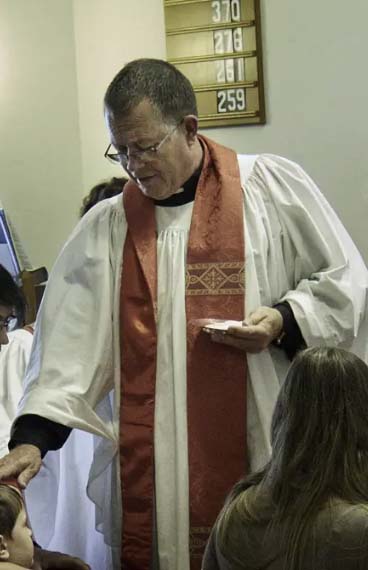Have you ever felt out of place, like you didn’t quite belong? Many of us have experienced moments where we longed for acceptance and a sense of family. In our spiritual journey, this longing reflects our innate desire to be part of God’s family. Through Jesus Christ, God offers us adoption into His divine family, transforming us from outsiders into His beloved children. This profound truth not only changes our identity but also invites us into a deeper relationship with our Heavenly Father.
As R.C. Sproul aptly put it, “Nobody is born into this world a child of the family of God. We are born as children of wrath. The only way we enter into the family of God is by adoption.”
Today, let’s explore this transformative journey from being estranged to becoming embraced as sons and daughters of God.
Our Original State: Enslaved to Sin & Children of the Devil
Before we came to know Christ, we were like children under strict guardians, confined and unable to experience true freedom. As the Apostle Paul said, “In the same way we also, when we were children, were enslaved to the elementary principles of the world.” (Galatians 4:3)
Jesus spoke directly about this condition: “You are of your father the devil, and your will is to do your father’s desires.” (John 8:44) It’s a stark reminder that living in sin aligns us with the devil’s nature, making us his children by default.
The devil can be likened to an abusive parent—a tyrant who manipulates, exploits, and destroys those under his care. He offers empty promises of freedom while keeping his children shackled in fear, lies, and sin. Think of Jack Torrance in The Shining. Jack begins as a father with potential but descends into manipulation, cruelty, and violence, ultimately endangering his own family. His actions are self-serving, born out of madness and a desire for power. This mirrors the devil’s nature—his intent is never to protect or nurture but to harm, control, and ultimately destroy.
Imagine being trapped in a dark room, unaware of the light and freedom just outside. This was our reality—enslaved to sin, manipulated by a cruel master who only wanted to destroy us. But then, through Christ, God opened the door, inviting us into His marvelous light and offering us true freedom as His beloved children.
Where the devil enslaves and abuses, God redeems and adopts, offering us not fear and manipulation but love, peace, and an eternal family. Through Jesus, we leave behind the oppressive rule of the devil and find our true Father in God.
God’s Eternal Desire: To Be Our Father
Have you ever thought about how deeply God has always wanted to be our Father? From the very beginning, His desire was to have a close, loving relationship with us. God told Moses to say to Pharaoh, “Thus says the Lord, Israel is my firstborn son.” (Exodus 4:22) What an incredible statement! God wasn’t just delivering His people from slavery in Egypt; He was declaring them His family.
This idea of God as our Father is a distinctive feature that runs throughout the Bible. Unlike other religions where the concept of God as a father may not exist or may even be considered inappropriate, the Christian faith emphasizes a close, personal relationship with a divine parent. He didn’t create humanity to be distant or detached. Instead, He wanted us to know Him as a loving parent, caring for us, guiding us, and giving us our identity as His children. For example, in Islam, the concept of God as a father is not only absent but is also considered blasphemous, as it implies a human attribute to the divine, which contradicts the Islamic understanding of God’s transcendent nature.
As the Catechism of the Roman Catholic Church puts it, “In his Son and through him, he invites men to become, in the Holy Spirit, his adopted children and thus heirs of his blessed life.” That’s the heart of God—He’s always been about bringing us into His family, not just as servants or followers, but as beloved sons and daughters.
From the beginning, God’s love has been like that of a father who longs to bring His children close, to protect and nurture them. Through Jesus, He extends that invitation to all of us: to leave behind our old identities and embrace our place in His family. That’s His eternal desire, and it’s the foundation of our hope.
The Fulfillment of Time: Jesus’ Redemptive Work
At just the right moment in history, God took a decisive step to bring us into His family. As Paul tells us, “But when the fullness of time had come, God sent forth his Son… to redeem those who were under the law, so that we might receive adoption as sons.” (Galatians 4:4-5)
This wasn’t a random act; it was a carefully orchestrated plan. Much like the legal process of adoption today—which requires intentional action, preparation, and perfect timing—God’s plan for our adoption was deliberate and fulfilled through Christ. He sent Jesus to redeem us, making it possible for us to be adopted into His family.
Think about the steps involved in adopting a child: the legal procedures, the waiting, the anticipation. Each move is purposeful, aiming to bring a child into a loving family. Similarly, God’s actions were intentional, culminating in Jesus’ redemptive work, so that we could become His sons and daughters.
It’s awe-inspiring to realize that our adoption into God’s family wasn’t an afterthought. It was His plan all along, executed with precision and love through Jesus Christ.
Our New Identity: Adopted Children and Heirs
When we embrace faith in Christ, something extraordinary happens—we become part of God’s family. Paul captured this beautifully: “For you did not receive the spirit of slavery to fall back into fear, but you have received the Spirit of adoption as sons, by whom we cry, ‘Abba! Father!’ The Spirit himself bears witness with our spirit that we are children of God, and if children, then heirs—heirs of God and fellow heirs with Christ.” (Romans 8:15-17)
This passage reveals that through the Holy Spirit, we’re not just called God’s children in name; we truly become His sons and daughters. The term “Abba” is an intimate Aramaic word for father, akin to saying “Dad” or “Daddy.” It signifies a close, personal relationship with God, where we can approach Him with the confidence and trust of a child.
Moreover, being God’s children means we’re also His heirs, sharing in the inheritance alongside Christ. This inheritance isn’t about material wealth; it’s about the richness of God’s kingdom—His love, grace, and eternal life. It’s a promise that we are fully integrated into His family, with all the privileges and responsibilities that come with it.
Consider the story of Judah Ben-Hur from the classic tale Ben-Hur. Once a slave, Ben-Hur is adopted by a Roman nobleman, granting him a new identity, freedom, and the rights of a son. His past as a slave is erased, and he becomes an heir to his adoptive father’s legacy. This mirrors our spiritual adoption; our past sins are forgiven, and we receive a new identity and purpose in God’s family.
Embracing this new identity calls us to live in the freedom and confidence of being God’s children. We are no longer bound by fear or our past mistakes. Instead, we can approach God openly, knowing we are loved and accepted, and we can share this love with others, reflecting the family likeness of our Heavenly Father.
Living as God’s Children: Reflecting Our New Family
As God’s adopted children, we’re called to mirror His character in our daily lives. Paul encourages us: “Therefore be imitators of God, as beloved children.” (Ephesians 5:1) Just as children naturally emulate their parents, adopting their mannerisms and values, we’re invited to reflect our Heavenly Father’s love, holiness, and grace.Jesus Christ, the Son of God, exemplifies what it means to be a child of our Heavenly Father. The writer of Hebrews wrote: “For he who sanctifies and those who are sanctified all have one source. That is why he is not ashamed to call them brothers.” (Hebrews 2:11) Jesus, our perfect older brother, teaches us through His words and actions how to serve our Father and love one another.
While we may have biological siblings, as Christians, we gain a spiritual family through the Holy Spirit. Paul reminds us: “Love one another with brotherly affection. Outdo one another in showing honor.” (Romans 12:10) This spiritual kinship calls us to support, encourage, and love our brothers and sisters in Christ, reflecting the unity and love of God’s family.
Living as God’s children isn’t about following a set of rules; it’s about cultivating a relationship that transforms us from the inside out. As we grow closer to Him, His character becomes evident in us, guiding us to live in a way that honors our new family identity.
Embracing Our Adoption Into the Family of God
Through Jesus’ sacrifice, we’ve undergone a profound transformation—from being enslaved by sin and aligned with the devil to becoming adopted children of God. This change fulfills God’s eternal desire to be our Father. As the Apostle John reminds us, “See what kind of love the Father has given to us, that we should be called children of God; and so we are.” (1 John 3:1)
Let’s embrace and rejoice in our identity as God’s children, allowing the Holy Spirit to guide us in living lives that honor our Heavenly Father. This means reflecting His love, grace, and righteousness in our daily actions and interactions.
Remember, being a child of God isn’t just a title; it’s a calling to live in a way that mirrors His character. Let’s commit ourselves to this journey, supporting one another as brothers and sisters in Christ, and shining His light in the world. Let us pray:
Heavenly Father, we thank You for the immeasurable love that led to our adoption as Your children. Help us to live in the fullness of this identity, reflecting Your character and sharing Your love with the world. In Jesus’ name, Amen.




